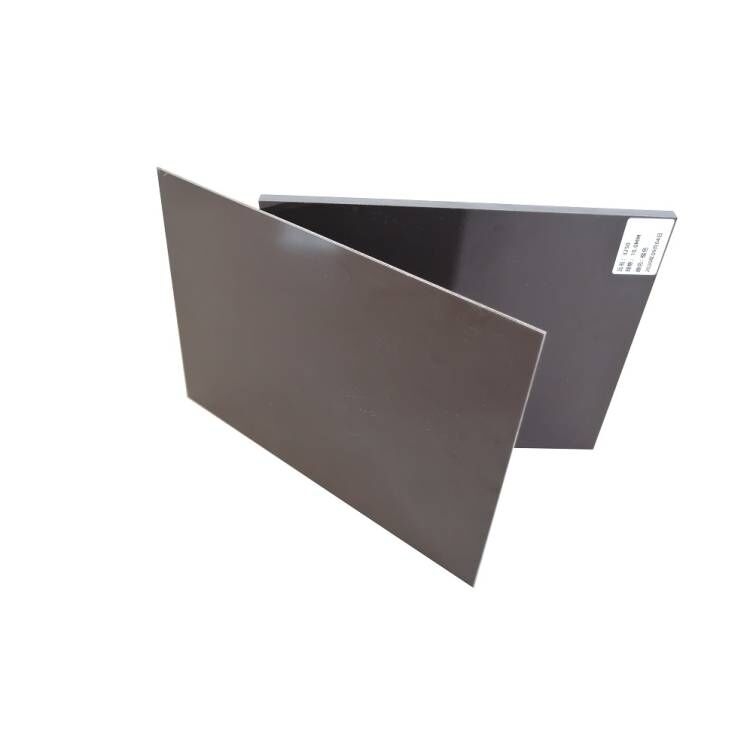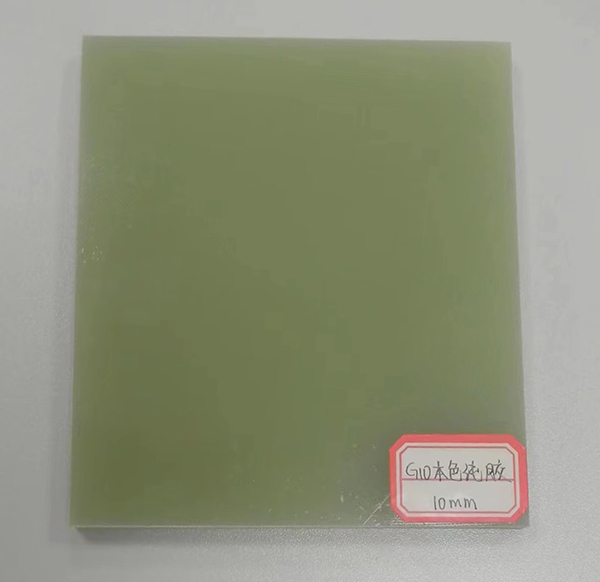As governor of South Carolina, she embraced doing business with China.
In her February 2024 announcement kicking off her presidential campaign, Nikki Haley issued a forceful condemnation of China, characterizing it as the "strongest and most disciplined enemy" ever faced by the United States. China FRP Molded Grating

"China's dictators want to cover the world in communist tyranny. We are the only ones who can stop them," Haley said.
But years earlier, as South Carolina governor, Haley celebrated a deal that brought a business with ties to the Chinese Communist Party to her home state.
"It's a great day in South Carolina. I am so sorry I'm not there with you in person to celebrate what is a fantastic announcement by the Jushi Group," Haley said in a 2016 video message obtained by ABC News that was played at a signing ceremony in Tongxiang, Zhejiang Province, to celebrate a deal bringing a manufacturing plant owned by China Jushi, a partially state-owned fiberglass company, to South Carolina's Richland County.
"We want to thank Chairman Zhang and everyone at the Jushi Group for allowing South Carolina to be the first location of your first U.S. manufacturing hub," Haley said in the video.
Since jumping into the race for the White House, Haley -- who's seen a boost in polling heading into Wednesday night's third Republican primary debate -- has made a tough-on-China stance a core tenet of her 2024 campaign. The former U.N. ambassador has aggressively criticized China in stump speeches, interviews, op-eds, and ads -- carefully crafting an image that a Haley presidency would be tough on China at a time when concerns over China's influence have emerged as a major issue for Republicans in the 2024 race.
But while Haley has worked to portray herself as the China hawk candidate for Republican voters, an ABC News review of her record as governor suggest a contrast to the image being presented on the trail.
During her time as South Carolina governor between 2011 through 2015, records show Haley embraced working with Chinese companies -- and recruited several to invest in her state -- praising the moves as good for the United States and something that could help remind Americans what's it's like to have a "passion again" to "work with urgency."
"It reminds us of what this energy feels like ... that we need to focus on that again," Haley said in 2012.
In 2015, Haley ranked No. 1 among Republican governors in Chinese investment, when adjusted for GDP, bringing in over $565 million in Chinese investment for the year, according to Rhodium Group's Chinese investment tracker. Haley's administration oversaw $1.43 billion in Chinese investment into South Carolina, according to Rhodium Group, a nonpartisan research firm.
In a statement to ABC News, a representative for the Haley campaign defended the governor's record, saying "Every governor running for president tried to recruit Chinese businesses to their state. Nikki Haley did it ten years ago. Ron DeSantis is aggressively recruiting Chinese companies now and just last week he scrubbed the Florida government website of proof of his recruitment. The question is, who will take on China as Xi Jinping ups the ante, and the clear answer is Nikki Haley."
When confronted on the campaign trail about her work recruiting Chinese companies as governor, Haley has looked to downplay her involvement and has faced criticism for mischaracterizing her record.
At a campaign stop in Boone, Iowa, in early October, Haley was asked by an audience member why as governor she "gave China thousands of acres of land in South Carolina" and, according to a The Washington Post fact check, provided a misleading response.
"Don't believe what you read on the internet," Haley replied. "We didn't sell any land to the Chinese. But, yes, I recruited a fiberglass company."
While Haley was technically correct in stating that no land was sold to the China Jushi Group, this is because the fiberglass deal did not involve a land sale. Instead, the company was granted nearly 200 acres of county-owned land at no cost, contingent upon their investment in South Carolina, as The Washington Post reported.
China Jushi's ties to the Chinese Communist Party include a top official, board chairman Chang Zhangli, who is a member of the company's dedicated Communist Party Committee. In addition, state owned company China National Building Material Company Limited owns nearly 27% of China Jushi and has several top officials who are also members of the Chinese Communist Party.
The Jushi Group currently boasts total assets exceeding 30 billion yuan and employs over 10,000 staff members. Boasting a fiberglass production capacity of up to 2 million tons, the company operates five production bases worldwide. These include domestic bases in Zhejiang Province, Jiangxi Province and Sichuan Province, and two international bases in Suez, Egypt, and South Carolina, USA, according to the company's website.
At the time of the deal that brought the company to South Carolina, Haley called it "a huge win" for the state.
After leaving the Trump administration at the end of 2018, and in the lead-up to launching her 2024 campaign earlier this year, Haley has taken a sharp turn regarding China and its influence.
In 2019, Haley delivered a speech on China where she expressed concern over the increasing Chinese threat, and in subsequent years she's penned numerous op-eds warning about China's influence.
In a 2020 Wall Street Journal op-ed, written amid the escalating COVID-19 pandemic, Haley criticized the approach of U.S. leaders toward China, arguing that their methods of dealing with the United States were fundamentally flawed.
"From the 1970s through the Obama administration, U.S. leaders from both parties operated under the theory that as China grew stronger economically, it would become more free and less aggressive, as had happened in other countries," Haley wrote. "However, in the case of China, that theory was disastrously wrong. As it gathered economic strength, China moved in the opposite direction, becoming less free and more aggressive."
As Republican candidates push to chip away at the large lead enjoyed by former President Donald Trump, the debate between Haley and Florida Gov. Ron DeSantis over who is tougher on China has escalated. Each has accused the other of being lenient towards China, citing their actions and policies during their tenures as governors.
A pro-Haley group blasted DeSantis in a new attack ad last week, claiming, "DeSantis even voted to fast-track Obama's Chinese trade deals," which appears to be false. Meanwhile, a super PAC backing DeSantis targeted Haley in October over the China Jushi deal -- blasting the move as evidence of "questionable judgment, dangerous on China."
DeSantis this week faced criticism after The Messenger reported that a Florida agency focused on the state's economic development scrubbed previous mentions of business opportunities in China from its website.
Responding to the story, the DeSantis administration called the change a coincidence and the result of an overhaul of the website.
At a 2015 gathering of Chinese and Taiwanese manufacturers in South Carolina, Haley -- speaking through a translator -- expressed strong support for foreign investment in the state.
"We have been the No. 1 state in the country for foreign direct investment in the last three years," she told the crowd. "You will have my personal cell number. There is nothing you will ever want or need that we won't work with you on directly."

Functional composite material 24/7 coverage of breaking news and live events